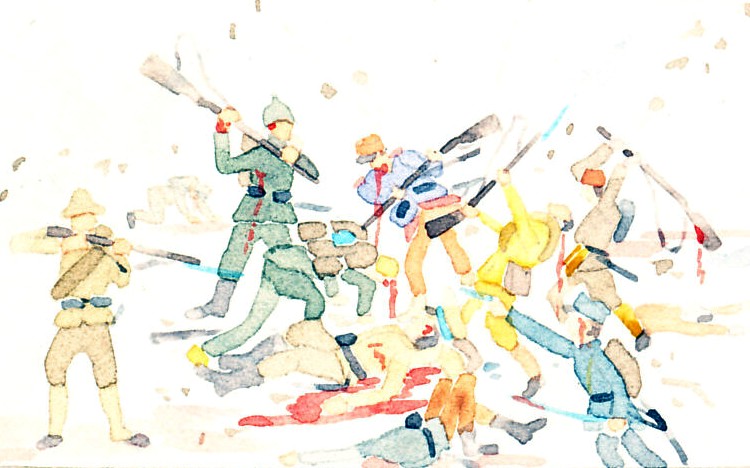An Italian postcard of the Industry of War. Kaiser Wilhelm of Germany squeezes gold from France and Belgium, filling sacks of money he provides to his ally Emperor Franz Josef of Austria-Hungary who feeds his guns to fire at Tsar Nicholas of Russia who vomits up troops. On the bottom right, Serbia, Montenegro, and Japan join the battle against Germany and Austria-Hungary. To the left, Great Britain flees to its ships. King Victor Emmanuel III of Italy surveys it all, serenely neutral until May 1915. Germany taxed Belgium and occupied France heavily during its occupation, in money, in food and other necessities, and in human life and labor. Austria-Hungary borrowed heavily from Germany to support its war effort. The enormous manpower of Russia was a source of consolation for its allies, and of trepidation to its enemies. Some suspected Great Britain would take its small army and return to its ships, home, and empire.

